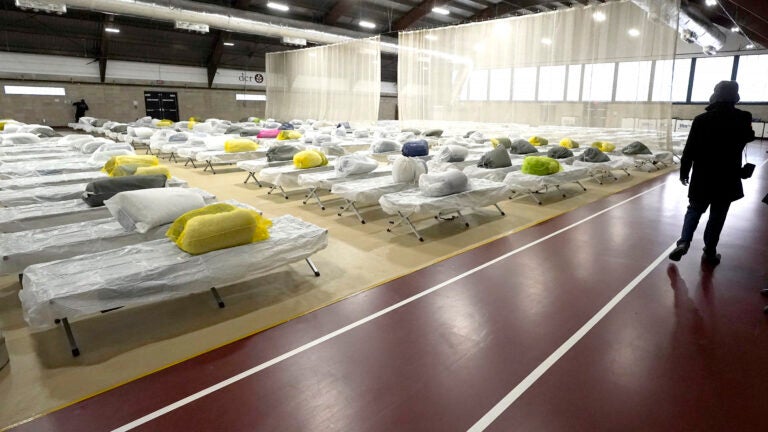Homeless families in Massachusetts who can stay with friends or family members elsewhere have been offered an opportunity by the local administration to apply for a program that will cover their travel expenses. This program aims to offer some relief to the heavily burdened state’s emergency shelter system while also supporting homeless families with an alternative housing solution.
This initiative has come to light amid the dual pressures of a housing affordability crisis and an increase in migrants in need of shelter, which saw overcapacity in the state’s emergency shelter facilities. As a result, the state board found it necessary to create additional overflow sites, apply shelter stay limits, and even appeal to federal authorities for additional resources. Simultaneously, the administration made additional efforts to communicate a message of ‘at capacity’ to migrants considering moving to Massachusetts.
Officials sought another approach to address these issues: providing for the travel expenses of individuals who had other options available. This resulted in the creation of the state’s reticketing program, under which the administration would pay for flights and bus tickets for families that had just arrived and had the option of staying with friends or relatives in other states.
As of March, 65 families elected to participate in the reticketing program. The number of families opting for this program was only 18 in early July. Around this time, notifications were being distributed to families as they arrived at welcoming centers throughout the state, advertising the program and detailing new regulations such as disallowing individuals from staying inside Logan airport.
The expenditure for the travel costs of the 65 families that used the program amounted to $85,768, which officials argue is much less than the expense associated with housing these families in shelters for nine months. The program is strictly voluntary, openly accessible to all families eligible for the state’s emergency shelter system, and is not exclusively for new arrivals. The families that have been given retickets have all been transported within the U.S.
All these efforts are part of a broader plan to decrease the number of families within the state’s shelter system. In a significant policy change last fall, a cap of 7,500 families was placed on the system, causing overflow sites and a waitlist to be activated. As of last week, there were 7,327 families in the system, with about half staying in traditional shelters and the other half accommodated in hotels and motels contracted by the state.
In a positive note, a total of 425 families exited the shelter system in September, a significant increase from the 162 exits in the same month in the previous year, with a total of 2,971 families having left the system since the beginning of the year.
Despite these significant strides, issues persist. The shelter system principally serves pregnant women and families with children. Roughly one in nine families seeking shelter in the last two years included a pregnant woman. However, there are reports that little has been done to address the specific health care needs of these expectant mothers.
While the ‘reticketing’ program and other measures have been a ray of hope for some, problems continue to plague the state’s emergency shelter system as it grapples with capacity, regulations, and the special needs of certain demographics. But what remains clear is the commitment of the state administration to seek innovative solutions and strive to address the housing crisis head on, offering a lifeline to the region’s most vulnerable families.




